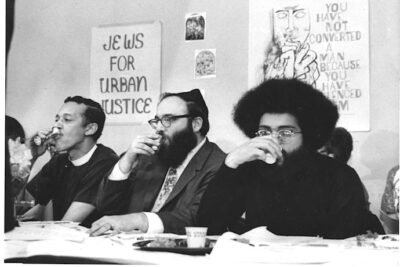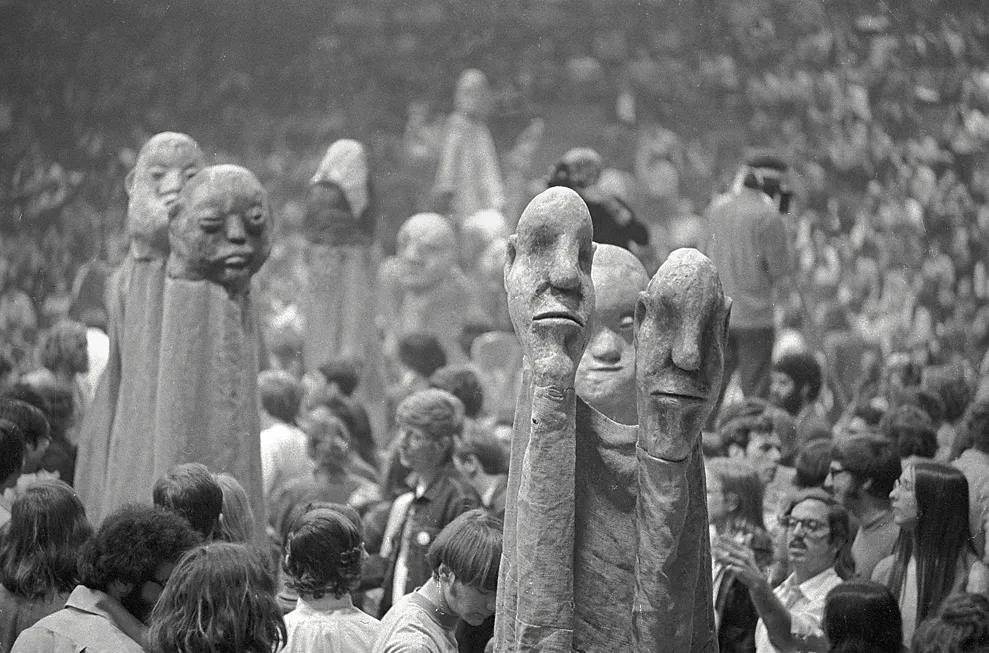As the Fall semester sets in across the country and 8 PM sunsets begin to fade away, there is something on the mind of many college students – what clubs do I join?
From the many pre-professional business frats to the local community advocacy groups, there are an overabundance of options for students wanting to strengthen their resume or just find a place to make friends – however, this diversity of choice is lacking in one particular area – Jewish life on campus. There is only one constant in this realm of campus culture, an organization that has in large part become synonymous with Jewish students. Whether you love it or hate it, Hillel International, with a presence on over 850 college campuses in the United States and around the world, the organization needs no introduction. Offering religious services, educational events, and a connection to Jewish culture, Hillel has become a force of nature in Jewish society since its founding in 1923 at the University of Illinois Urbana-Champaign.
Hillel prides itself on “a space for all kinds of Jewish students — a place where they feel welcomed and included.” While this is a well intended message- especially in a time of increasing plurality for the Jewish people worldwide – this mission has fallen short, particularly with reference to Jewish students’ opinions on Israel. It is no secret that Hillel is a Zionist organization; a quick search on their website implores the reader to donate so that they can continue working to inspire Jewish students to “make an enduring commitment to Jewish life, learning, and Israel.” To Hillel, Judaism and Zionism are one in the same and their campus programming often reflects this worldview. They promote the famous Birthright Israel trip with constant advertisements, and offer, “Jewish Learning Experiences,” where Jewish students are paid to learn about a variety of topics- including Israeli history, politics, and culture. This endorsement of the Israeli state alienates the ever growing community of Jewish students who balk at the foreign government’s actions, supposedly in their name.
Even before the events of October 7th, Hillel’s insistence on promoting Zionism as a key component of Jewish life has left many students feeling ignored and unwelcome. I spoke with Eliza Salamon, a recent graduate of Cornell University who echoed this feeling –
“I felt that even if there was a space to observe holidays and learn alongside other Jews, I would never be fully included and always seen as less than Jewish for being an anti- Zionist. I didn’t understand why a religious and cultural organization needed to have such a hard line on Zionism. If their mission was to create a welcoming space for all Jews on campus, it seems they are failing in that.”
Hillel’s exclusionary politics are a relatively new development in its 100-year history – with Hillel International only releasing its “Standards of Partnership,” in 2010. Hillel has come under various controversies over recent years, from cutting ties with a Jewish LGBT+ organization over its collaboration with JVP on a fundraiser for refugees, and sending harassment to a Jewish student body president over introducing a BDS a resolution, to using Hillel’s existence as the sole Jewish organization on campus to speak for all Jewish students.
New Voices has covered the growing polarization of Hillel from a variety of positions and methodologies, ranging from investigations on polarization and imploring arguments against Hillel’s controversial David Project, to guest op-eds on why Hillel workers resigned after years of trying to solve institutional problems from the inside. With all of this said and documented in so discourse, how can Jewish students who don’t necessarily align with the staunch Zionist views of Hillel find enriching community in a post October-7th world?
While Jews On Our Own Terms (JOOOT), (formerly Open Hillel) has become a prominent contender as a Hillel alternative, aiming to bring together communities that do not necessarily align with Jewish national organizations, and in their words, “reclaim Jewish communal life, both on campus and more widely.” JOOOT has tried to fill a generational gap, left by years of regressive activism and the monopolization of Jewish life by Hillel. It currently functions in tandem with on-campus organizations and provides essential digital resources for protest and civil action, pens callouts of academic financiers, and staunchly advocates for a community that functions outside of the umbrella of Hillel’s influence. JOOOT has created a strong foundation for the future of Jewish communal life, as represented by its points of unity, and while local organizations have provided comfortable alternatives, they have yet to create the national arc of in-person support that Hillel boasts. As our campuses grow more polarized and spaces for diverse thought shrink, an argument can be made that Jewish non-Zionists and anti-Zionists need something more radical, more communal, and more consciously based in everchanging Jewish tradition – we need a new Chavurah.

The very first Chavurah can be traced back to a small Quaker town just outside of Los Angeles; however, the Chavurah movement itself exploded out of the struggles of justice in the late 1960’s and 70s. As American Jews began to become disillusioned with what they described as overinflated and spiritually starved Jewish institutions across the country; faith leaders, academics, and activists began experimenting and establishing new progressive ways of being and celebrating Judaism.
Just as our ancestors two generations ago organized in response to the clear spiritual and moral rot of the Jewish establishment of their time, we can see clearly how this observed decay has not only grown but is accelerating. For 76 years, Zionism has slowly and steadily infiltrated Jewish institutional ideology, creating a self-mutilating Judaism that views any drive away from Zionist policy as anti-Jewish. As individuals in the Jewish community concerned with the future of Jewish practice, tradition, and thought, who are aware of the real material conditions which are pushing Jews of all forms, away from observance and community, it is time to propose a new Chavurah in response to the current Zionist-Jewish establishment.
Our communities, our campuses, and our world needs a space open to our thoughts, prayers, tears, and embraces. This place, this Chavurah, must be deeply rooted in found community, mutual aid, and the pursuit of justice. To paraphrase Arthur Waskow’s words, this is not merely a space for Jewish radicals, but for radical Jews.

The wheels are already turning. Right now, a small group of determined Jews are working to recreate the Chavurah at Cornell University. This will not be the first Cornell Chavurah. In 1970, as university Chavurahs spread across the country, about 15 Cornell students set about to create their own. For a few years, students lived together in an off-campus residence, combining both religious and secular life into a space of shared purpose. Said one of the founders: “No existing institution at Cornell affords us what we want, so we have to create our own.”
Almost 55 years later, we face the same ruptures, and the same opportunity for communal creation.

